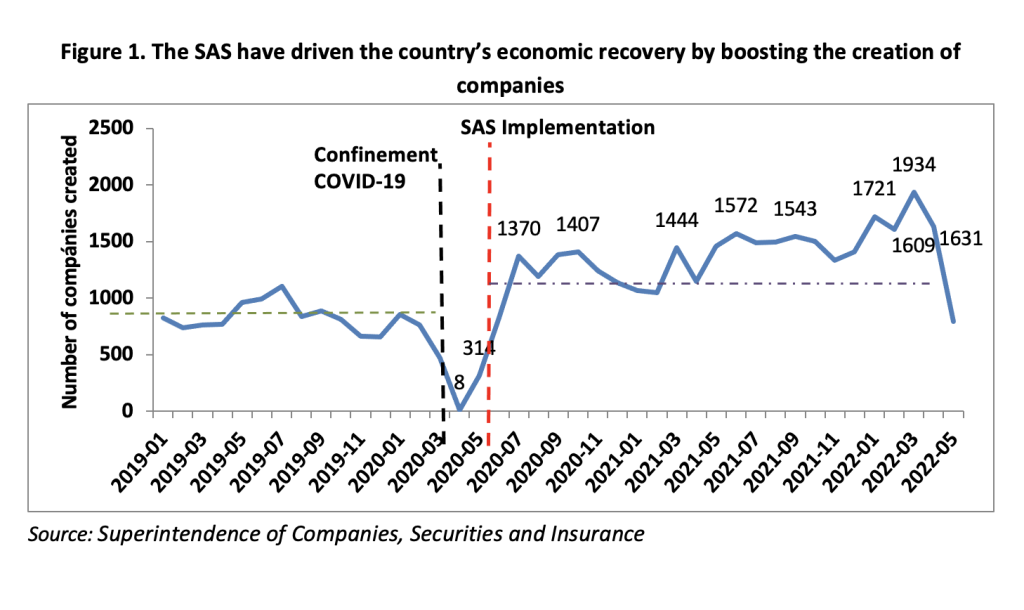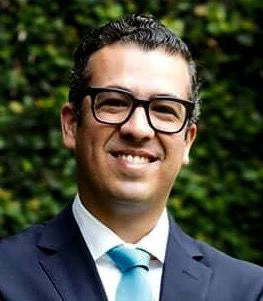 Emprendedor en su taller arreglando bicicleta en las calles de Quito, Ecuador
Emprendedor en su taller arreglando bicicleta en las calles de Quito, Ecuador
New coffee shops, formal grocery stores, digital startups, and hundreds of other businesses are the results of the efforts of more than 22,000 Ecuadorians who have chosen to use Simplified Stock Companies (SAS) to set up their companies, or formalize them , and thus contribute to the country’s economy, even during the COVID-19 pandemic.
The SAS have attracted all types of entrepreneurs due, among other things, to their ease of incorporation at zero cost and flexibility of operation. The SAS have also encouraged companies to acquire formal status. A survey by the Superintendence of Companies, Securities, and Insurance (Supercias), reveals that entrepreneurs engaged in some type of economic activity prior to converting their business into an SAS chose this corporate model in order to access credits to strengthen and expand, and improve the image of their businesses, as well as to enable them to register their employees with the social security system.
In these first two years, 29% of SAS have a woman as their legal representative, and 41% have at least one female shareholder. Meanwhile, more than 600 SAS have succeeded in accessing credits, with a current portfolio of US$136 million. The new SAS have also begun to participate in public procurement bidding processes.
Meanwhile, the Internal Revenue Service (SRI) has collected around US$218 million in taxes from the SAS alone , and around 25,000 workers have been registered in the Ecuadorian Institute of Social Security (IESS), of which approximately 40% are women. Commerce, with 26.6% of total SAS incorporations, has been the major beneficiary of the SAS model, followed by the professional, scientific and technical activities sector which accounts for 19% of the total.
From conception to implementation the SAS have been the result of an initiative taken by the Government of Ecuador, with the continuous support of the private sector and the World Bank. The World Bank in particular has actively collaborated with the Supercias throughout the process of constitution, implementation, training, and dissemination of the scheme, by sharing good international corporate practices.
Part of the success of the SAS has been due to the information and training provided to the private sector. Examples include: the development of performance measurement reports and private sector satisfaction surveys; manuals for external users and analysts of the institution; online training courses; and an ongoing communication campaign to publicize the SAS, explaining its scope and benefits with a view to encouraging entrepreneurs to take advantage of the scheme.
The number of SAS companies created in Ecuador has grown since May 2020, thus helping to boost Ecuador's economic recovery. The continuing expansion of the SAS is displacing other more traditional types of companies such as the Limited Company (Sociedad Anónima) and Limited Liability Company (Sociedad de Responsabilidad Limitada). On average, around 1,300 new companies were created monthly since May 2020, most of them using the SAS format. As shown in Figure 1, the monthly average of new companies is significantly higher than before the introduction of the SAS.

The SAS, if properly adopted, could benefit other countries around the world. They could be especially useful in developing and emerging economies where there is a growing need for corporate flexibility and new corporate vehicles that are easy to incorporate and operate. Ecuador, without a doubt, is an example to follow.
The SAS story does not end here. We await further chapters.


Join the Conversation